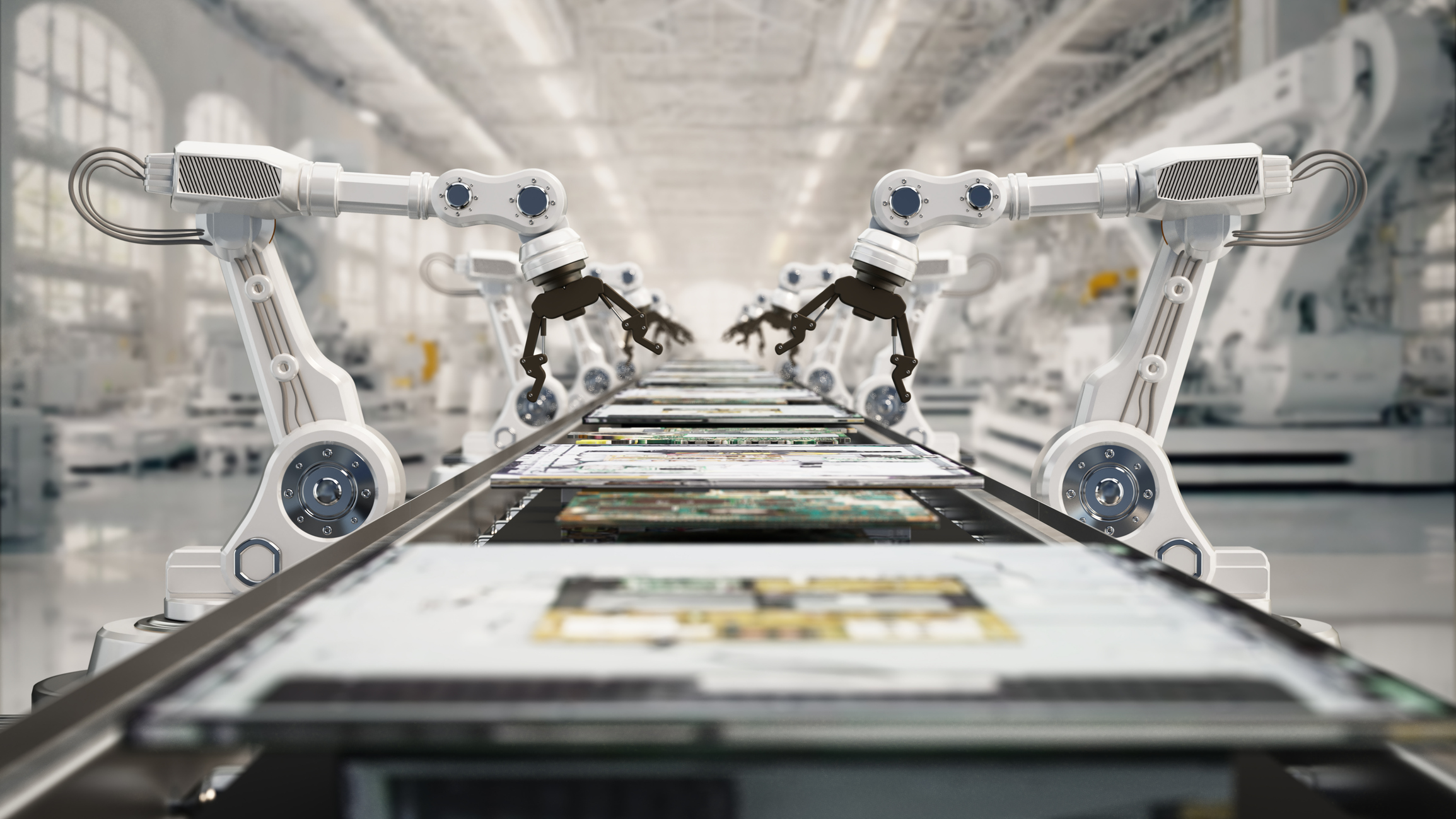The state envisions itself as a highly qualified contender in embracing Industry 4.0 by leveraging its unique strengths — a skilled workforce, strong digital infrastructure, and a thriving innovation ecosystem.
Published Oct 20, 2025 | 7:00 AM ⚊ Updated Oct 20, 2025 | 7:00 AM

High-tech industry Representative Image. (iStock)
Synopsis: Kerala unveiled a High-Tech Manufacturing Policy Framework aimed at building a future-ready, innovation-driven industrial ecosystem. Anchored in the state’s Industrial Policy 2023, the plan envisions building a world-class Industry 4.0 – compliant ecosystem that blends advanced automation, data-driven decision-making, and intelligent manufacturing.
Kerala is setting its sights on a bold industrial transformation. In a decisive move to reposition itself on India’s manufacturing map, the state unveiled a High-Tech Manufacturing Policy Framework aimed at building a future-ready, innovation-driven industrial ecosystem.
The policy envisions Kerala as a strategic nexus for smart manufacturing and advanced technological solutions, integrating intelligent, interconnected systems to power smart factories, digital supply chains, and sustainable production models on par with global standards.
With the government formally approving the framework — submitted by the Kerala State Industrial Development Corporation Limited Managing Director — the initiative is poised to strengthen the state’s manufacturing base, attract high-value investments, and create quality employment opportunities, marking a significant leap toward inclusive, tech-led economic growth.
According to the Industries Department, the state has set the stage for a technology-driven industrial revolution with a bold framework designed to transform its manufacturing landscape.
Anchored in the state’s Industrial Policy 2023, the plan envisions building a world-class Industry 4.0 – compliant ecosystem that blends advanced automation, data-driven decision-making, and intelligent manufacturing.
Over the next decade, the state aims to create a business environment that not only attracts new investments and high-tech jobs but also integrates cutting-edge technologies into traditional industries to boost productivity, scale, and global competitiveness.
By fostering strong research and development (R&D) capabilities and smart factory linkages, the policy seeks to power a new era of innovation — where machines and products communicate in real time, driving efficiency and sustainable growth.
This forward-looking strategy positions Kerala as a hub for futuristic industries, ensuring its economic engine keeps pace with global technological transformations.
The framework observed that with the world in the midst of the Fourth Industrial Revolution — a technological wave that merges the physical, digital, and biological realms to reshape how we design, produce, and deliver goods and services — the state must embrace this transformation.
According to the framework, the state envisions itself as a highly qualified contender in embracing Industry 4.0 by leveraging its unique strengths — a skilled workforce, strong digital infrastructure, and a thriving innovation ecosystem.
The Fourth Industrial Revolution, driven by nine key technologies including autonomous robots, big data, augmented reality, additive manufacturing, cloud computing, cybersecurity, IoT (internet of things), system integration, and simulation, demands precisely the kind of technical competence Kerala can offer, the framework said.
According to it, with a high literacy rate, robust educational institutions, and vocational training centres producing a technically adept talent pool, the state is well-equipped to meet the complex needs of high-tech industries.
High-tech manufacturing, which requires minimal space yet delivers high-value output, aligns perfectly with the state’s development model.
It said strategic initiatives such as ‘Digital Kerala’, the expansion of IT parks and specialised industrial zones, and government-backed policies create an enabling environment for innovation, R&D, and advanced manufacturing.
These factors, the framework observed, combined with the state’s proactive approach to fostering digital literacy and technological adoption, position Kerala as an attractive destination for global investment and a future hub for Industry 4.0-led economic growth.
Though the state’s vision of embracing Industry 4.0 is ambitious, the path is fraught with real and pressing challenges. Reliable high-speed connectivity, the backbone of advanced technologies like IoT, AI, and real-time data analysis, remains inconsistent, especially in key industrial and educational hubs.
The Industries Department itself pointed out that building a seamless digital infrastructure similar to Singapore, South Korea, and Estonia is crucial to unlocking this transformation.
Yet, the roadblocks don’t end there. Micro, Small, and Medium Enterprises (MSMEs) face steep capital investment requirements to integrate cutting-edge technologies, while regulatory frameworks and awareness campaigns lag.
Ensuring robust data security and interoperability across supply chains is another critical hurdle.
Perhaps the most significant challenge lies in cultivating a skilled, STEM (Science, Technology, Engineering, and Mathematics)-driven workforce equipped to navigate and power this digital revolution — a task that demands strategic upskilling, talent retention, and visionary planning.
Commenting on the initiative, a Confederation of Indian Industry (CII) member said, “Kerala’s High-Tech Manufacturing Policy Framework is a commendable and forward-looking initiative, signalling the state’s intent to position itself as a hub for Industry 4.0 and advanced manufacturing. The focus on integrating intelligent systems, fostering R&D, and promoting smart factories aligns well with global best practices and has the potential to attract high-value investments and generate quality employment.”
However, the representative added, translating this ambitious vision into reality will require addressing significant structural and operational challenges.
“Ensuring reliable high-speed digital connectivity across industrial clusters, upskilling the workforce in advanced technologies, and supporting MSMEs with financial and technical resources are critical gaps that need urgent attention. Additionally, robust regulatory frameworks and cybersecurity measures must be strengthened to safeguard industrial ecosystems,” the member said.
(Edited by Muhammed Fazil.)
